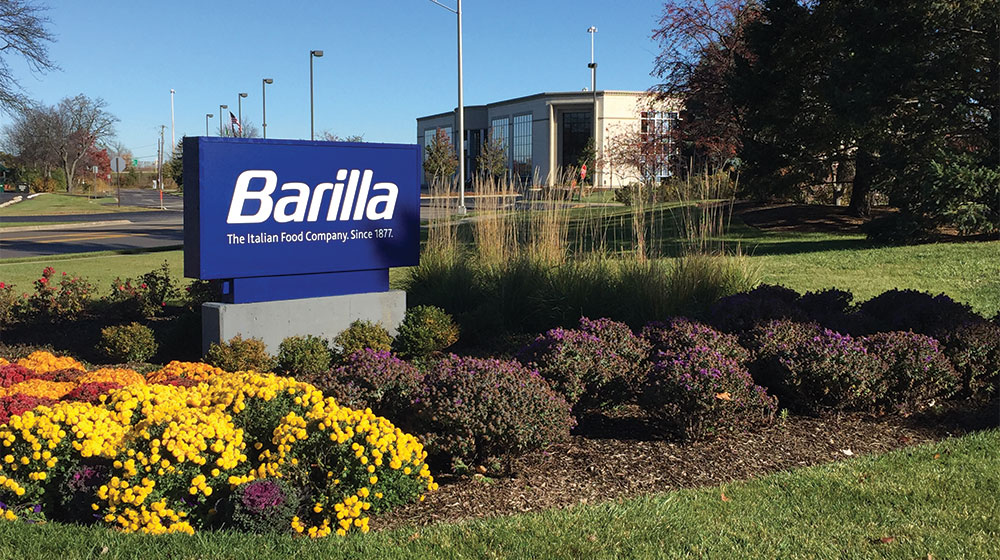Barilla

From their classic blue pasta boxes to their artful sauce jars, many people are likely familiar with the comforting taste of Barilla. As a company that services $4 billion worth of sales annually and employs over 8,000 people worldwide, the company’s name has become synonymous with the words “pasta night.” What fans of al dente fettuccine may not be familiar with, however, is Barilla’s commitment to food waste reduction efforts and employee empowerment.
“As a world-leading company in food production, Barilla has a duty, through its activities, to make a concrete contribution to the many social and environmental challenges of today’s global context, particularly in relation to issues of health, climate change, and food waste,” says Fabio Pettenati, Vice President of Supply Chain for Barilla America.
The word “duty” in Pettenati’s statement is not one Barilla takes lightly. As jovial as the efforts may seem from the exterior, Barilla does not shy away from the sometimes bleak realities of the global food waste crisis.
“Not much has changed over the years with regards to food waste numbers,” continues Pettenati. “It is estimated that 1.3B tons of food is wasted every year — enough to feed approximately 900 million hungry people.”
Inspired to change this, Barilla has employed several different tactics aimed at curtailing waste at each of its three main sources: production, distribution, and consumption.
Regarding Barilla’s waste reduction efforts in the production and distribution process, Pettenati says: “The food losses in the pasta making process are relatively small, in the single digit range (as a percent), from field to delivery to customers. Despite that, we relentlessly pursue process optimizations aimed at making that percentage even lower, so that we become more efficient and reduce the input needed.”
“Then, at the next level, we work at educating consumers. Our website hosts recipes explaining how to use leftovers and not toss them, along with which quantity of product to use to avoid eating too much or having too much left.”
The elephant in the room with environmental initiatives is financing. Investing in new processes and practices that optimize waste requires significant capital. To justify the use of this capital, there needs to be proof that such initiatives benefit the company in the long run.
“When projects have a positive impact on the environment and social justice, we are allowed to go in longer terms of expected paybacks,” says Pettenati of raising capital.
Some of the expected investments in food waste reduction efforts are aimed at improving the bottom line in the short term as well as the long run. Investments in supply chains and the entire agricultural process serve to both eliminate waste and improve efficiency.
“There are several areas where improvement can be made,” says Pettenati. “Farmers may adjust their practices so that yields go up, while usage of fertilizers and pesticides go down. Consumption of vegetable-based proteins will keep growing, reducing the carbon footprint generated by kettles, and technology will allow producers and end users to better monitor the life of food and reduce the quantities being wasted due to spoilage.”
These aims for improvement hinge on another key component of Barilla’s mission — cooperative engagement. Members of the Barilla family from all ranks and departments are encouraged to play an active role in making decisions and speaking up.
“Barilla’s work is truly motivated by passion and employee engagement, particularly through the Employee Resource Group (ERG), whose leaders regularly connect with senior leadership and lead critical initiatives,” says Pettenati.
If you want to be a part of the Barilla team and help play a role in producing some of the best food in the world while getting a chance to make a difference in the community, visit barillagroup.com/careers. Barilla America’s corporate office is located right here in Northbrook, IL.
“Making food that is good for people and the planet is the purpose that drives us every day,” says Pettenati. “It's a commitment from field to fork, to bring to the world tasty, joyful, and wholesome products, made with selected raw materials from responsible supply chains.”
